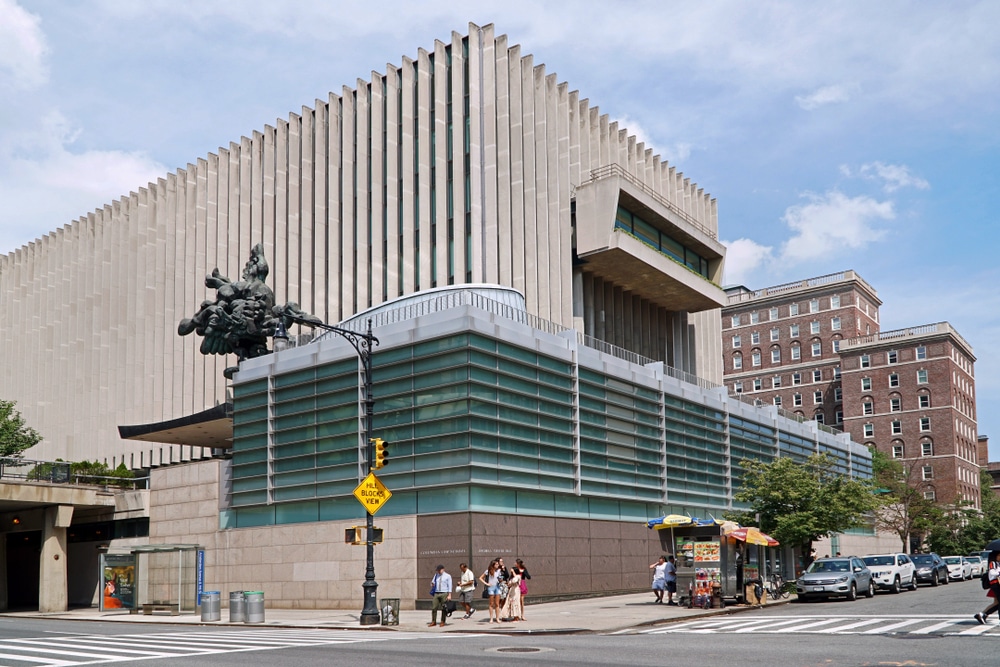What is the Columbia Law School Acceptance Rate?
Seeking to attend a renowned law school like Columbia is a significant decision that requires preparation, dedication, and a thorough understanding of the application process. Columbia Law School is known for its distinguished faculty, rigorous curriculum, and being at the epicenter of legal work and innovation. So, what is the Columbia Law School acceptance rate, and what are the factors that influence this ratio?
Understanding the Admissions Process at Columbia Law School
The admissions process at Columbia Law School is holistic. The admissions committee assesses every application individually, taking the time to consider all factors. However, understanding this process can be overwhelming for prospective students.
This section will demystify the admission process, making it less daunting and more approachable.
Key Factors in Columbia Law School Admissions
The admissions committee at Columbia Law School examines several factors when reviewing applications. The Law School Admission Test (LSAT) scores and the applicant’s undergraduate Grade Point Average (G.P.A.) are significant indicators of academic potential. However, they are not the sole determinants of an application’s success.
The committee takes into account the entirety of the application, including an applicant’s personal statement, letters of recommendation, resume, character, and overall potential to contribute to the Columbia Law community.
Furthermore, the committee values diversity and seeks to admit students from a wide range of backgrounds and experiences. They believe that a diverse student body enriches the learning environment and prepares students for the complexities of the legal profession.
Additionally, Columbia Law School is committed to fostering a sense of community and collaboration among its students. They look for applicants who have demonstrated leadership skills, the ability to work well in teams, and a commitment to social justice.
Timeline of the Admissions Cycle
The Columbia Law School admissions cycle begins in September, with the application available to be completed online. For regular admission for the fall 2024 entering class, applications will open on September 1, 2023, with a deadline of February 15, 2024, for regular decision applicants.
Once the application deadline has passed, the admissions committee carefully reviews each application, considering the applicant’s academic achievements, extracurricular involvement, and personal qualities. They aim to create a diverse and talented incoming class.
Interview invitations are sent out to selected applicants, providing an opportunity for the admissions committee to learn more about the candidates. These interviews may be conducted in person or via video conference, allowing applicants from around the world to participate.
After the interview process, the committee begins making decisions. This is a thorough and thoughtful process, as they carefully consider each applicant’s fit with the Columbia Law School community and their potential for success in the program.
Decisions begin to be released from December onwards, concluding typically by May of the following year. Accepted students are notified of their admission, while those who are not admitted may be offered a place on the waitlist or receive a rejection letter.
Overall, the admissions process at Columbia Law School is designed to identify and admit exceptional individuals who have the potential to make a positive impact in the legal field. It is a rigorous and competitive process, but one that ultimately aims to create a diverse and talented community of future lawyers.
Analyzing the Columbia Law School Acceptance Rate
When it comes to pursuing a legal education, understanding the acceptance rates of different law schools is crucial. It allows prospective students to gauge the competitiveness of the application process and make informed decisions about where to apply. In the case of Columbia Law School, the acceptance rate is a topic of great interest and importance.
During the 2023 application cycle, Columbia Law School received 7,754 applications, and the acceptance rate was 11.9%. It’s important to understand that acceptance rates can fluctuate from year to year. However, analyzing past data, such as this rate for 2023, provides invaluable insight into the competitive nature of the application process. By delving deeper into the historic and comparative acceptance rates, we can gain a clearer perspective of what to expect.
Historical Acceptance Rates
Over the past decade, the Columbia Law School acceptance rate has ranged from approximately 10% to 12%. This makes it one of the most selective law schools in the country. With a limited number of spots available, the competition for admission is fierce. Many aspiring lawyers aspire to be part of this prestigious institution.
What does this mean for prospective applicants? It underscores the importance of thoroughly preparing your application to stand out from the crowd. From crafting a compelling personal statement to securing strong letters of recommendation, every aspect of your application should be carefully considered and meticulously executed.
Comparing Acceptance Rates: Columbia vs. Other Top Law Schools
When comparing acceptance rates, it becomes evident that Columbia Law School is on par with other top-ranked law schools in terms of selectivity. For instance, Yale and Stanford, recognized as some of the most selective law schools in the nation, also have acceptance rates that hover around 10% to 20%.
This comparative view helps illustrate the uncompromising quality and standard expected from applicants at the top stratum of American legal education. It highlights the level of excellence required to secure a spot at Columbia Law School and other prestigious institutions.
However, it’s important to note that acceptance rates are just one factor to consider when choosing a law school. Other factors such as location, faculty expertise, curriculum, and career opportunities should also be taken into account. Each law school offers a unique experience, and it’s essential to find the right fit for your personal and professional goals.
In conclusion, the acceptance rate at Columbia Law School, like other top law schools, is highly competitive. Prospective applicants should be prepared to put forth their best effort in order to stand out among a pool of talented candidates. By understanding the historical and comparative acceptance rates, you can better navigate the application process and make informed decisions about your future legal education.
The Importance of LSAT Scores and GPA in Acceptance
Certifying strong academic potential is vital when seeking to secure a place at Columbia Law School. Two key indicators that the admissions committee takes into account are your LSAT scores and GPA.
We will explore their average values and impact on acceptance in the following sub-sections.
Average LSAT Scores for Accepted Students
The LSAT is a standardized test regarded as a reliable predictor of law school performance. The median LSAT score for students accepted to Columbia is typically around 173, which falls in the 99th percentile of test-takers nationally.
This high score demonstrates the caliber of academics expected from students at the law school.
Scoring in the 99th percentile on the LSAT is no small feat. It requires extensive preparation, critical thinking skills, and an in-depth understanding of legal reasoning. Students who achieve such high scores have proven their ability to excel in the rigorous academic environment of Columbia Law School.
Furthermore, a high LSAT score not only showcases your intellectual capabilities but also sets you apart from other applicants. Admissions committees are often inundated with applications, and a standout LSAT score can make a significant difference in the selection process.
Average GPA of Accepted Students
The average GPA of accepted students at Columbia Law School usually hovers around 3.87. This demonstrates a consistent history of high achievement and is reflective of the academic rigor at the law school.
A strong GPA indicates that you have consistently performed well in your undergraduate studies, showcasing your ability to handle challenging coursework and excel academically.
However, it’s important to note that a high GPA alone is not enough to secure admission to Columbia Law School. Admissions committees consider various factors, including extracurricular activities, personal statements, letters of recommendation, and work experience, in addition to GPA and LSAT scores.
Nonetheless, a strong GPA can significantly enhance your chances of acceptance. It demonstrates your commitment to academic excellence and your ability to handle the demanding coursework at Columbia Law School.
Moreover, a high GPA can also open doors to various scholarship opportunities. Many law schools, including Columbia, offer scholarships based on academic merit, and a stellar GPA can make you a competitive candidate for these financial awards.
In conclusion, both LSAT scores and GPA play a crucial role in the admissions process at Columbia Law School. They serve as indicators of your academic potential, demonstrating your ability to excel in a rigorous academic environment.
While a high LSAT score showcases your critical thinking skills, a strong GPA reflects your consistent academic achievement. Together, these factors contribute to a comprehensive evaluation of your application and increase your chances of acceptance to one of the top law schools in the country.
Tips for Increasing Your Chances of Acceptance
Even with high LSAT scores and GPA, you need to ensure other aspects of your application also shine. Let’s look at some components that you can work on to enhance your chances of acceptance.
Crafting a Compelling Personal Statement
Your personal statement is the narrative that explains who you are beyond your academic achievements. A compelling personal statement should spotlight your character, experiences, and why you wish to study law at Columbia.
A well-constructed personal statement can distinguish you from other worthy candidates and reflect your potential contributions to the Columbia Law community.
Imagine this: You sit down at your desk, pen in hand, ready to pour your heart and soul onto the pages of your personal statement. As you reflect on your journey, you delve into the pivotal moments that have shaped your passion for law. You vividly describe the experiences that have ignited your desire to make a difference in the legal field.
Your words flow effortlessly, capturing the attention of the admissions committee and leaving them eager to learn more about the unique perspective you bring to the table.
Furthermore, a compelling personal statement not only showcases your accomplishments but also reveals the challenges you have overcome. It demonstrates your resilience, adaptability, and determination to succeed in the face of adversity. By sharing your personal story, you humanize your application and connect with the reader on a deeper level.
The Role of Letters of Recommendation
A letter of recommendation plays a crucial role. These endorsements provide an external perspective on your aptitude and character. Two letters are required for the application, usually from academic references who can attest to your intellectual ability, character, and potential.
Imagine this: You approach your favorite professor, the one who has witnessed your growth and dedication throughout your undergraduate studies. With a sense of gratitude and excitement, you ask them to write a letter of recommendation for your law school application. They gladly agree, eager to highlight your exceptional analytical skills, your passion for justice, and your unwavering commitment to academic excellence.
Letters of recommendation serve as a valuable external voice in your application, enhancing your academic and personal claims. They provide insight into your abilities and qualities that may not be evident from your transcripts or test scores alone. Admissions committees rely on these letters to gain a more holistic understanding of who you are as a person and as a potential law student.
Moreover, letters of recommendation can shed light on your potential to contribute to the Columbia Law community. They can speak to your leadership abilities, your teamwork skills, and your potential to make a positive impact on campus. A strong letter of recommendation can be the final push that convinces the admissions committee that you are the perfect fit for their program.
Conclusion: Navigating the Columbia Law School Admissions Process
Applying to Columbia Law School indeed entails a comprehensive process. From strong LSAT scores and high GPAs to compelling personal statements and influential letters of recommendation, every component plays a critical part in painting a holistic picture of who you are as a candidate.
With a clear understanding of the process and requirements, coupled with self-reflection and diligent preparation, navigating the pathway to Columbia Law School is a surmountable challenge that can pave the way to an exciting and impactful legal career.
Having all the necessary information is important before choosing any course of action. AdmissionSight is always here to assist you with any questions or concerns. We have more than ten years of expertise assisting students in successfully navigating the challenging admissions process.
Consult with AdmissionSight and find out what we can do to help you get into the school of your choice by ensuring that you are sufficiently aware and well-prepared for the application process.










































